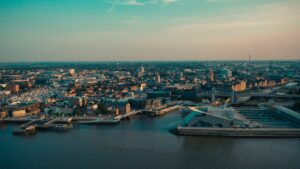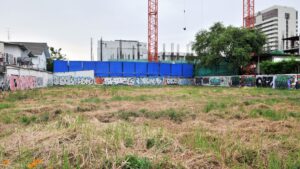 Cash-strapped councils have been accused of over-exploiting public parks by hiring them out for music festivals.
Cash-strapped councils have been accused of over-exploiting public parks by hiring them out for music festivals.
Research presented last week at the Royal Geographical Society Annual International Conference claims that parks in London, in particular, are being hired out by private corporations for music festivals, thus restricting access for members of the public.
According to urban geographer Dr Andrew Smith from the University of Westminster, there were 10 multi-day music festivals staged in London’s parks this summer, as well as many other day-long events.
He said councils should reassess the number of festivals they permit and warned against relying on revenue from festivals to pay for park services.
‘London parks are prestigious spaces that attract lucrative hire fees, but this inevitably has a knock-on effect for park use,’ said Dr Smith.
‘Local people complain about noise and disruption but there’s also a wider ideological concern about privatisation.’
Dr Smith claimed the increased scale and frequency of park-based festivals means they are increasingly opposed by local residents and campaign groups.
These disputes – particularly the one between Haringey Council and the local Friends Group over events staged in Finsbury Park – highlight important issues regarding the funding and management of public space.
According to his research, in the first nine months of 2018, Finsbury Park will have been occupied by festivals for 113 days, compared to 29 days in 2015.
These figures include the set up and deconstruction of events.
This has led to the Chair of the local Friends Group claiming that Finsbury Park ‘can no longer be called a park’.
He added that festivals outside of London that are usually held on private land and therefore increase public access to private space, events in the capital are shrinking the amount of unrestricted access to parks.
In addition to people being unable to access cordoned off spaces, the physical and environmental impacts of events are proving problematic.
Temporary installations and towering fences dramatically change the landscape of parks, disrupting what are meant to be open, free and accessible green spaces that provide respite from the built-up environment.
Research published by Natural England in July showed visits to city parks and green spaces in England were up by 25% in 2016 compared to 2010.
It also found that more people are visiting the natural environment within towns and cities across England than ever before with an estimated 879 million visits to parks in towns and cities in 2015/16.
And a report published by Fields in Trusts in May claimed Britain’s parks and green spaces provide people with more than £34bn of health and wellbeing benefits.
Photo by avarty 

















Leave a Reply